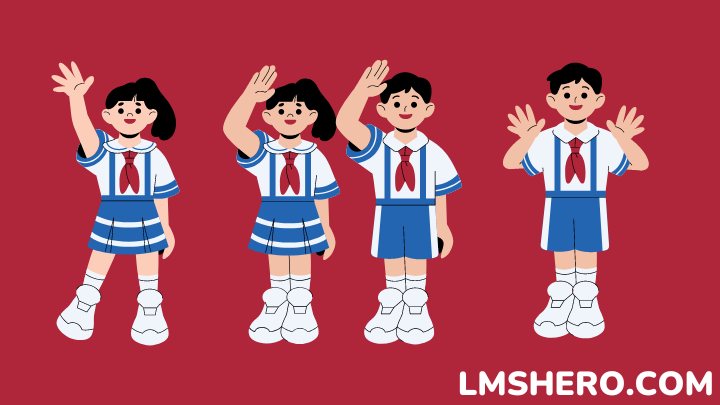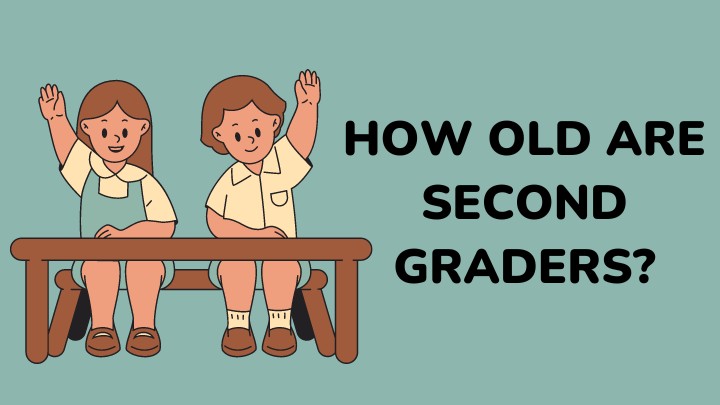The second grade is a stage in the U.S. elementary school system that builds on what the child learned in the first grade to prepare them for the next. But, how old are second graders?
Generally, second graders are usually between 7 – 8 years old. However, a few factors may affect this age system. For example, the age of the child at the date of enrollment.
As a parent or teacher, it is important that you know the challenges they may come across and help them prepare.
So, if you want to know the challenges that second graders face and how you can best prepare your child for them, then this article is for you.
What is the average age of a second grader?

According to the general school placement system, the average age of second graders is between 7 – 8.
Although, a child could still be younger or older than the average age of second graders. This occurs mostly because of the age of the child at the point of enrolment.
What subjects do second graders cover?
All second graders are expected to cover the following subjects;
What skills should a second grader have?
Generally, the second grade is a follow-up on skills learned in the first grade. So, the basic skills a second grader should have includes the following;
1. Writing and reading skills
A second grader must have a prior understanding of how to read and write. This is because they would require this skill for a number of reasons. Some of these include;
- Comprehending and retelling stories, including remembering details of the story.
- Must be able to write sentences properly using capital letters correctly.
- Must be able to use pronouns properly in sentences.
2. Social skills
At any level of education, social skills play a huge role in the development of a child. As a second grader, social skills are important for a number of reasons. Some of these include;
- Working and playing with friends.
- Communicating with teachers or students.
- Being comfortable and composed in the presence of their colleagues.
3. Basic math skills
Math is such an important subject in the educational system, and second graders must have prior knowledge at their time of enrolment. Some of these basic math skills include;
- Adding or subtracting 1 or 2-digit numbers.
- Writing numbers and mathematical signs or symbols properly.
- Must be able to describe and analyze shapes.
- Have a prior understanding of numbers and operations in base 10.
What are the challenges second graders face?
As young as second graders are, they do face a fair share of challenges. Some of these challenges are;
1. Mastering their reading and writing abilities
Many second graders may find reading and writing to be tedious. A number of them find it hard to understand sentence structure, where to capitalize, or how to end a sentence. This affects their performance in class assignments, group projects, and even during tests.
2. Understanding math concept
Math is a general problem for second graders. This is because they find it difficult to understand the concept of each topic.
It may be confusing for them to know when to add, subtract, divide, or multiply. This, in time, will affect the child as they tend to build the mindset that math is difficult.
3. Expressing creativity
This mostly occurs when a child has poor social skills, and it hinders them from expressing their selves or their ideas. It is particularly challenging to show off what you know when you are not comfortable talking in front of a class.
4. Lack of motivation to study
Second graders are still young, and they do not understand just how important education is. This affects their performance in school, like doing their assignments or studying properly for a test.
How to prepare your child for the second grade
1. Encourage them to study more
The first step to take is to encourage your child to study more. Educate them on the importance of education and what they can gain from performing well.
The best practice is to adopt a system where you reward them for their performance. This will act as a motivation for them to study more and get better grades.
Additionally, you can try making education fun for them by playing puzzles or other educational games with them.
2. Help them with math
One of the main challenge second graders face is understanding math. You can help them understand better by practicing the basics with them.
Try doing some addition, subtraction, multiplication, and division together. To make it more fun, try using real-life scenarios to aid their practice.
3. Help them out with other subjects they find difficult
Aside from math, your child may find a particular subject to be difficult. You can talk to the teacher to get more information about your child’s performance in various subjects.
If you can, study these subjects with your child or get a tutor for one-on-one guidance.
4. Teach your child to be more sociable
Being able to communicate with colleagues or classmates is very important in a child’s development process. It allows them to express their selves or ideas.
Additionally, if they are social, they would be able to make new friends that share the same interest as them.
5. Get them relevant study materials
One of the best ways to prepare your child for the second grade is to get them relevant study materials or textbooks. Some of the best books for second graders are;
- Scholastic success in reading comprehension, grade two
- The best chef in second grade
- The best seats in second grade
- Comprehension skills: Short passage for reading, grade two.
FAQs
Can a 9 year old be in second grade?
Yes, they can.
Although the normal age range is 7 – 8 for second graders, certain conditions allow schools to admit students that are younger or older than their grade.
What do second graders learn?
Second graders learn a number of subjects like math, science, geography, reading and writing, social science, and visual art. They also learn skills that build on the foundation of what they learned in first grade.
How do you know if your child is old enough for second grade?
If your child is between the age of 7 – 8, then he is old enough for second grade.
Conclusion
As mentioned earlier, the normal placement system states that second graders be between 7 – 8 years. However, certain conditions may cause a second grader to be younger or older than their age grade.
While second graders face a number of challenges that could automatically affect their performance, it is your role as a parent to ensure you help them over their challenges.
You must ensure your child has the necessary skills. Additionally, you should ensure you educate them on the importance of studying, then motivate and reward them.
Surely if you play your part, your child’s performance will be at an optimal level and will set him or her up for the next grade.
I hope you enjoyed reading this article, you should also see how old 4th graders are.
Thanks for reading.







